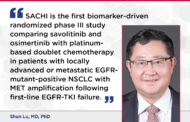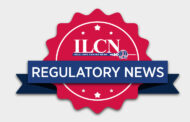
The IASLC Patient Advocates Committee ensures that the association addresses the informational needs of the public, advocates, patients living with lung and other thoracic cancers, and caregivers. ILCN recently talked with the committee’s chair and longtime patient advocate Jill Feldman.
In the following Q&A, Ms. Feldman, co-founder of the patient advocacy group EGFR Resisters, discusses the committee’s recent endeavors as well as what the future might bring. You can also read more about Ms. Feldman’s personal journey with lung cancer and patient advocacy here.
ILCN: For those who may not be familiar with the Patient Advocates Committee, tell us a little bit about its history and mission.
Ms. Feldman: The Patient Advocates Committee is unique. It wasn’t that long ago that actual patients first got involved in the Patient Advocacy Committee because in the past patients didn’t live long enough to become involved in advocacy. A lot has changed with the committee since patients started getting involved. I know a lot has changed since I first got involved 6 years ago.
Some of the change has to do with trying to define the role of the Patient Advocates Committee. IASLC is not an advocacy organization, so we are charged with thinking about how the Patient Advocacy Committee can support the IASLC membership, which includes researchers, clinicians, advocates, patients, and caregivers.
To give you an example, when I first got involved, the committee was doing a lot of work for Lung Cancer Awareness Month. As we thought about how to best support the membership, we decided there are plenty of organizations that do that work. We asked ourselves, “What other things could IASLC do to support research globally?” Just before the pandemic hit, we began creating smaller groups within the Patient Advocates Committee to work on specific projects, such as education grants, the member survey, and our Language Guide.
ILCN: What has the committee been working on recently? Are there any projects or initiatives that you’d like to share with ILCN readers? How will these efforts help advocates and patients living with thoracic cancers?
Ms. Feldman: The Language Guide is really important because lung cancer is so stigmatized. There was a time when patients didn’t attend scientific conferences, read journal articles, or interact with researchers, but they do now. We wanted to change the harmful language we use in research—whether written in an abstract or spoken in a presentation—and provide investigators with suggested language that is empathetic and nonjudgmental to reduce the stigma.
We must keep going back to the mission of the organization: What is the Patient Advocates Committee’s role in supporting members? Where does that align? The Language Guide is a perfect example. We’re supporting the members by advocating for blame-free, stigma-free, inclusive, and equitable language.
ILCN: What is on the horizon for the Patient Advocates Committee?
Ms. Feldman: IASLC is in the process of crafting a new strategic plan, which means things are in a bit of a holding pattern until we see the plan and determine what role the committee can play in helping the larger organization with its goals. We always look to the mission of the organization. Fortunately, (IASLC CEO) Dr. Karen Kelly has been wonderful about involving me in committee meetings. The Patient Advocates Committee can better support members if we understand the organization and are informed about what the other committees are doing. We are discussing a few projects that we can work on now, but once the strategic plan is done,the Patient Advocates Committee will redefine our role in line with the association’s goals and its mission to lessen the burden lung cancer places on patients, families, and communities.
I think there are so many potential ways that we can do that. I see patient advocates as catalysts that can bring people together at local and regional levels. One of the things I’ve proposed, which is happening informally, is getting the Patient Advocates Committee involved in planning events like the World Conference on Lung Cancer. Behind all the incredible data presented at meetings are patients. That can get lost. I think input from patient advocates helps to ensure the important work being done is centered on the patient.
Another thing we want to work on is survivorship. Patients are living longer, which is fantastic, but we are in uncharted territory. The current patient support systems and resources often aren’t built for people with late-stage lung cancer.
ILCN: Is there anything else you’d like to share with readers about the Patient Advocates Committee?
Ms. Feldman: I think the most important thing to know is the Patient Advocates Committee is here to help members ensure the patient voice is heard and, in turn, help them be more successful. For example, I think every trial benefits from understanding how patients live. I feel very strongly about that. The statistics, the survival data—these are not the only things that matter. They tell you how long someone lives, but not how well they live.
From a patient perspective, research should be looking at quality of life, toxicity, price. Extending survival is a great goal, but it’s not enough. As a patient, I want LIVE. And what that looks like is unique to each patient. The patient reported outcomes are extremely important.





